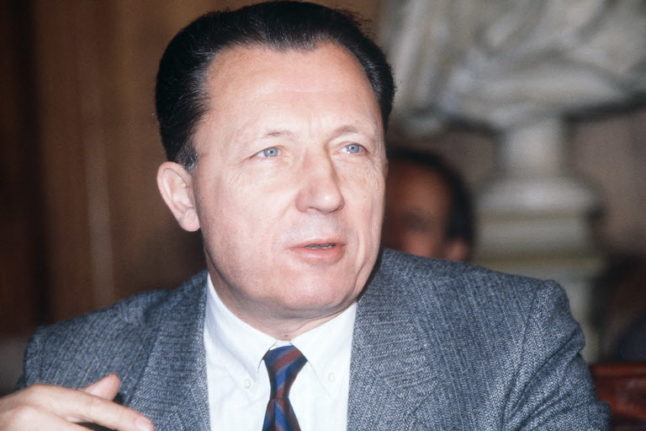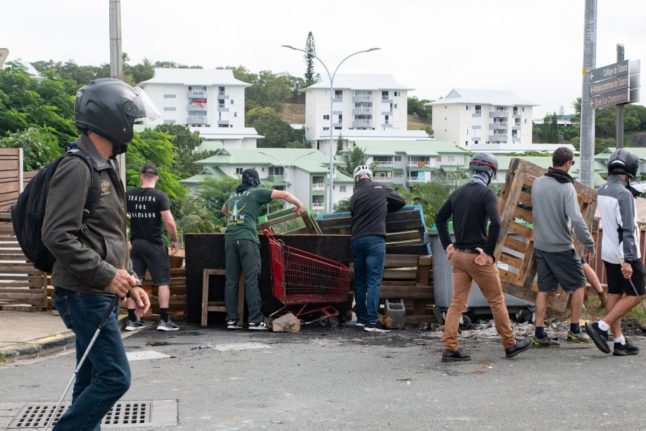Jacques Delors, a former head of the EU Commission and key figure in the creation of the euro currency, died in his sleep in his Paris home on Wednesday at the age of 98, his daughter Martine Aubrey reported.
Delors, a Socialist, had a high-profile political career in France, where he served as finance minister under president Francois Mitterrand from 1981 to 1984.
But he declined to run for president in 1995 despite being overwhelmingly ahead in the polls, a decision he put down to “a desire for independence that was too great”.
“I have no regrets,” he said about that decision later. “But I’m not saying I was right.”
He headed up the European Commission from 1985 to 1995, a decade that saw major steps in the bloc’s integration.
These included the completion of the common market, the Schengen accords for travel, the Erasmus programme for student exchanges and the creation of the bloc’s single currency, the euro.
His drive for increased integration met with resistance in some member countries, especially Britain under prime minister Margaret Thatcher.
“Up Yours Delors” read a famous 1990 front-page headline in The Sun newspaper which voiced its concerns about a single currency and increased powers for the European Parliament.
To get his reaction, I took the "Up Yours, Delors" @TheSun front page (which of course he'd already seen) to Delors when I worked for The European. "I might deplore the style, but Britain has something we in France don't, a lively grassroots debate on Europe", he said. Class act. pic.twitter.com/O875FCjAVn
— Anne-Elisabeth Moutet 🇫🇷🇺🇦 (@moutet) December 27, 2023
Following the news of his death, tributes have been flooding in from around Europe.
In France
In France itself, tributes were paid from across the political spectrum.
French President Emmanuel Macron called Delors “a tireless creator of our Europe”.
Macron said that “his commitment, his ideal and his rectitude will always inspire us” adding that Delors was “a statesman with a French destiny.”
French Socialist party chief Olivier Faure said that “a giant has left us”. Calling Delors “a child of the century” who had “experienced the worst”. Faure said he had sought to “overcome tragedy by building a durable peace”.
Jean-Luc Mélenchon, leader of the hard-left La France Insoumise party, said Delors was “a Socialist of a generation that had an ideal, a man of action who always thought of the common good”.
Centrist François Bayrou said that for him “and for an entire generation of my political family and thought, he was a reference like no other”.
Around Europe
European Council President Charles Michel said Delors “led the transformation of the European Economic Community towards a true Union”.
“A great Frenchman and a great European, he went down in history as one of the builders of our Europe,” Michel posted on social media.
Current European Commission chief Ursula von der Leyen said Delors had “shaped entire generations of Europeans, including mine” and was “a visionary who made our Europe stronger”.
European Central Bank chief Christine Lagarde highlighted Delors’s role for the single European market and “the path he laid out towards our single currency, the euro”.
Europe, she said, “has lost a true statesman”.
“Modern Europe today loses its founding father,” said Enrico Letta, a former Italian prime minister who currently heads the Jacques Delors Institute created by the ex-EU commission chief.
Italian Foreign Minister Antonio Tajani praised “a personality who showed, on the basis of Christian values, the path of strengthening Europe”.
Belgium’s Prime Minister Alexander De Croo also hailed the EU’s “founding father”, whose “project for a stronger and more secure union remains hugely relevant for the Europe of tomorrow”.
Spanish Prime Minister Pedro Sanchez said that Delors “always believed in a united, open and prosperous Europe”. “He worked to make what many thought impossible a reality.”
German Chancellor Olaf Scholz hailed Delors as a “visionary” and an “architect of the EU as we know it”.
Delors fought for European unity “like few others”, Scholz added, urging Europeans to continue his work for the continent’s benefit.
And the USA
US Secretary of State Antony Blinken described Delors as a “visionary statesman.”
“Delors transformed Europe through tireless service to the idea of a Europe whole and free.”



 Please whitelist us to continue reading.
Please whitelist us to continue reading.
Member comments